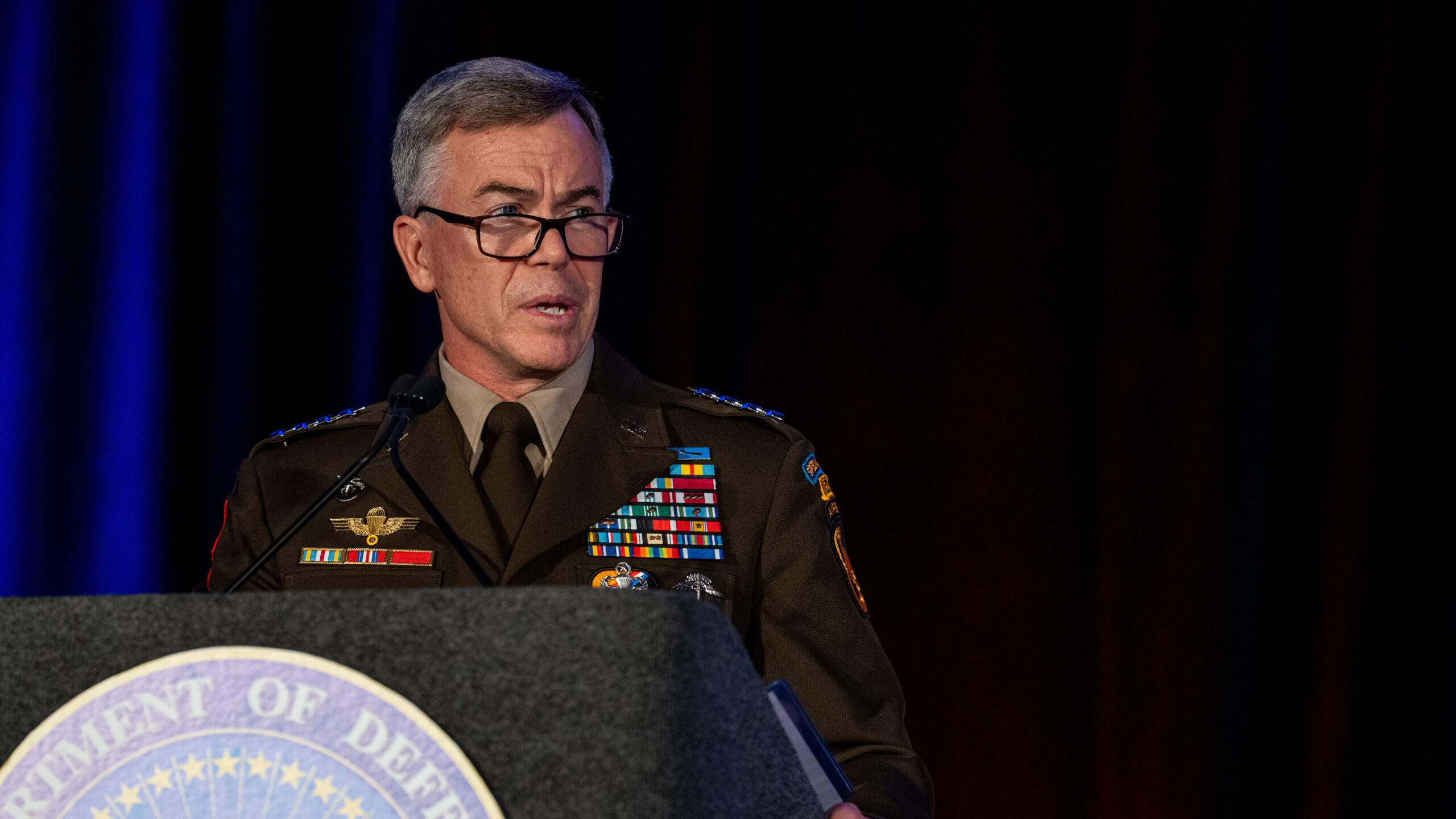LEE FERRAN

Incoming U.S. Special Operations Command Commander (USSOCOM) Army Gen. Bryan Fenton speaks during a USSOCOM Change of Command ceremony at the Tampa Bay Convention Center in Tampa, Fla., Aug. 30, 2022. (DoD photo by U.S. Navy Petty Officer 2nd Class Alexander Kubitza)
SOF WEEK 2023 — The head of US special operations says he doesn’t necessarily see a “direct linkage” between some of the lessons learned in Ukraine and those useful in a potential conflict with China, but Kyiv’s defense of its country has emphasized another, more general rule: When it comes to international partner forces, “be there early.”
USSOCOM chief Gen. Bryan Fenton was referring to the American special operations relationship with the Ukrainian military, dating back to shortly after the end of the Cold War. In the mid-1990s, he said, someone from the special operations community was there ” to shake the hand of this new nation, Ukraine, and talk to their military and say, ‘We want to be a partner.'”
“You gotta be there,” Fenton told the audience at SOF Week 2023 here in Tampa, Fla. “You gotta be there early.”
The second lesson, he told the audience, was to be “persistent” in developing capabilities that meet Ukraine’s needs as the country moved along its “own journey.” It’s at that point the third lesson comes in: improve that capability by teaching relevant lessons from America’s own experience from combat in Iraq and Afghanistan. (Previously, observers have noted that the structure of Ukrainian forces, mirroring those of US forces, allow greater flexibility and effectiveness on the ground — lessons Moscow never appeared to learn.)
After all that, the last lesson is perhaps the most obvious: listen, and learn from the partner’s experience.
Fenton half-joked that some of the time the US is working with partner nations, the Americans learn more than they teach. And while he suggested some specific, tactical lessons wouldn’t necessarily translate to a different conflict, namely a fight in the Pacific, he said US special operations forces were already “employing now” some of what Ukrainian forces have taught them.
Elsewhere in the talk, Fenton said the US was facing an unprecedented collision of threats to the international order, what he called “waves of consequence,” from Russia’s invasion of Ukraine, to China’s assertiveness in the Indo-Pacific, to Iran and North Korea’s destabilizing actions “in their respective regions” to the lingering threat from non-state actors like ISIS and al Qaeda.
When it comes to strategic competition, he said that competition is “in action at both ends of the spectrum,” with conventional military threats on one end, to activities in the gray zone — below the threshold of conflict — on the other.
Helping to counter those threats, Fenton said, is the special operations community’s focus on emerging technology — integrating artificial intelligence, natural language processing, “data-driven” capabilities, robotic and autonomous uncrewed systems. Later, in response to a question, Fenton noted the importance of cyberspace and space itself in modern operations — so integral that they form a SOF-cyber-space triad.
Still, the SOCOM chief struck an optimistic tone about the waves of change crashing all around. SOF operators, he said, are big wave surfers.
No comments:
Post a Comment